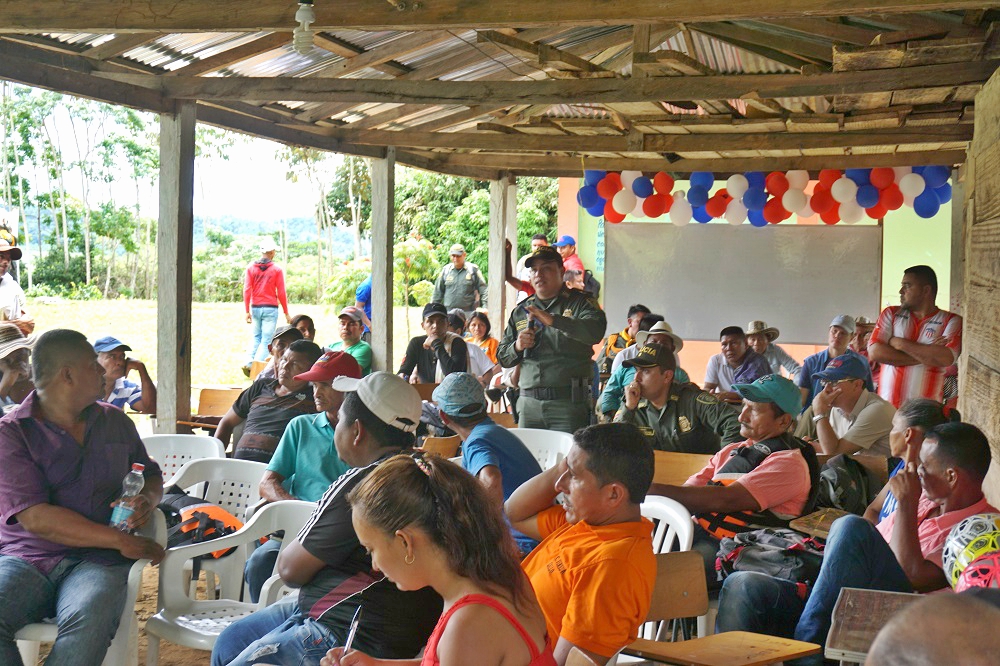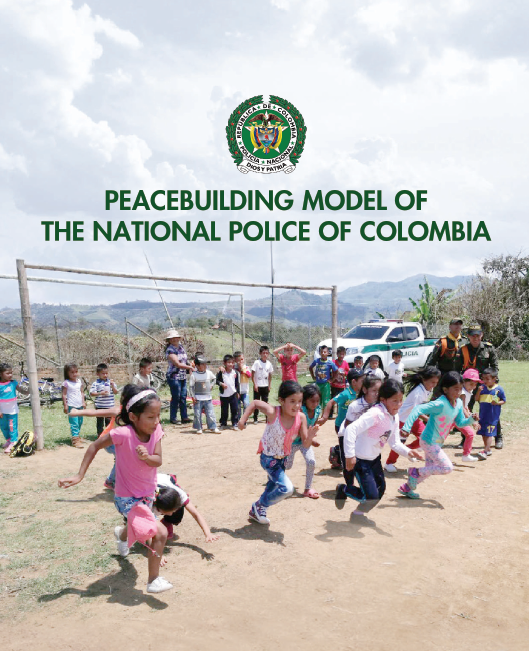Peacebuilding begins with open dialogue: Engaging Colombian communities to enable an inclusive approach

As part of the work carried out by Interpeace with the Police Unit for Peacebuilding – UNIPEP -, a visit was made to one of the Territorial Areas of Training and Reincorporation in Colombie, with the objective to talk with community members, and learn about the challenges they face in the implementation of the peace agreements.
Interpeace participated in the visit to "El Gallo" camp located in Córdoba, with representatives of the DNP (National Department of Planning), military forces, departmental government, UN Verification Mission and other authorities. The purpose of this visit was to bring together community leaders who are representatives of the various towns in the area, to discuss their needs and challenges in terms of security.
Through several dialogue sessions, the State authorities were able to define priorities and specific actions to be developed by their local representatives to enforce security measures in their communities, and continue working in the implementation of the peace agreements in the rural areas of Colombia.

"El Gallo" Camp in Colombia. Photo credit: Interpeace
A look back: Working with the National Police of Colombia to build peace
After more than five decades of conflict, on November 24, 2016, an agreement was signed between the Colombian Government and the FARC-EP, which marked the beginning of a new era.
To define the role of the National Police of Colombia in the implementation of the Peace Agreements, the Police Unit for Peacebuilding – UNIPEP- facilitated the elaboration of the “Modèle de consolidation de la paix de la police nationale,,” where the responsibilities and actions of the institution are described on the basis of the six points of the Final Peace Agreement. Interpeace and partner organization Alianza para la Paz., have provided technical support in this process, with the support of the Swiss Embassy, the Kingdom of the Netherlands, Great Britain and Northern Ireland.
This project entitled: "Strategic Peacebuilding Route for the National Police of Colombia" began with a participatory process of consultation within the institution, which resulted in the definition of the Model and its operational plan, which guarantees the contribution of the police to the implementation of the final peace agreement. The model seeks to develop capacities for peace building and peaceful conflict transformation, as well as the coordination of this type of actions with the defense sector and with other institutions of the State, responsible for the implementation of the agreements.

